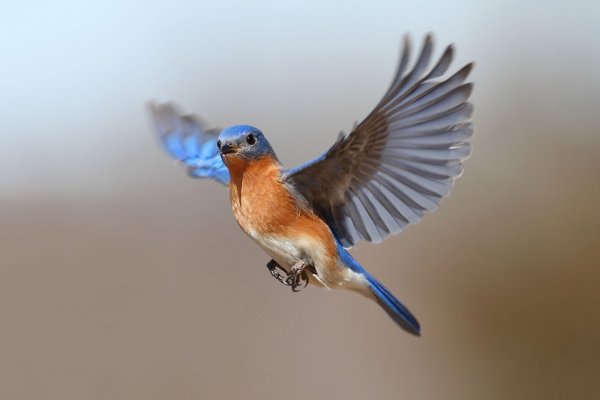It’s Official: Neonics Don’t Just Harm Bees, They Cause Migrating Birds To Lose Their Way
 By Amanda Froelich Truth Theory
By Amanda Froelich Truth Theory
For years, beekeepers have suspected that neonicotinoids, the world’s most widely used class of insecticide, are at least partly responsible for the phenomena known as Colony Collapse Disorder (CCD). While there is some research suggesting this is true, it isn’t conclusive. It is for this reason that new research suggesting neonicotinoids, or neonics, cause migrating songbirds to lose their sense of direction and suffer drastic weight loss is so important.
This harrowing finding was published in the peer-reviewed journal Scientific Reports. According to The Guardian, the researchers analyzed the effects of neonicotinoid imidacloprid on white-crowned sparrows that migrate to northern Canada from southern US and Mexico in the summer.
What they discovered is astounding. Birds that were given doses equivalent to less than a single corn seed became weak within hours. They also developed stomach problems and stopped eating. The researchers reported that the avians lost 17-25 percent of their body weight, depending on the dose, and were unable to navigate the direction of their migration. Said Prof Christy Morrissey, of the University of Saskatchewan in Canada, “Basically, these birds became lost.”
Reportedly, the results shocked Morrissey. She said, “The reason our new study is special is this is not a correlation – it is actual experimental evidence. The effects were really dramatic. We didn’t anticipate the acute toxicity, because the levels [of neonicotinoid] we gave them were so low.”
Within 14 days, the birds recovered their weight and sense of direction. While this is positive, it is still troublesome. Morrissey explained, “We know from other studies on many different species of migratory birds that if you are delayed by even a few days getting to your breeding ground, or you are in poor condition when you arrive, you have lower reproductive success. We know these effects are really important for population level changes.”
According to Charlotte Roy of the Minnesota Department of Natural Resources in the US, neonics are typically applied to seeds so they can permeate the entire plant. While this helps farmers and giant corporations in the short-term, it is devastating to the many creatures that nibble on the shoot. “Everything from pheasant to blackbirds, house sparrows, deer, raccoons, bunnies, mice, squirrels. Lots of different animals are coming to the spills,” said Roy.
The researchers admit that their work is in the early stages. However, this recent finding should raise red flags concerning the safety and use of neonicotinoids. Colleague Julia Ponder, of the University of Minnesota, is confident their work will have “significant ramifications.”
Bayer — which makes imidacloprid — denies any negative correlation between the insecticide and the wellbeing of wildlife. Said a spokesman for the company: “Scientific evidence shows that imidacloprid has minimal environmental impact when used according to the label, including ingestion by seed-eating songbirds. We take the safety and environmental impact of our products seriously.”
The researchers aren’t convinced. Morrissey said only now are scientists beginning to understand the harm of neonicotinoids. “Pesticides have long been speculated as being one of the drivers of farmland bird declines, but we are only just barely touching the edge of that and understanding how pesticides can affect birds,” she said.
What are your thoughts? Please comment below and share this news!
Read more: Bayer To Buy Monsanto Creating World’s Largest Seed And Pesticide Company
Leave Comment: